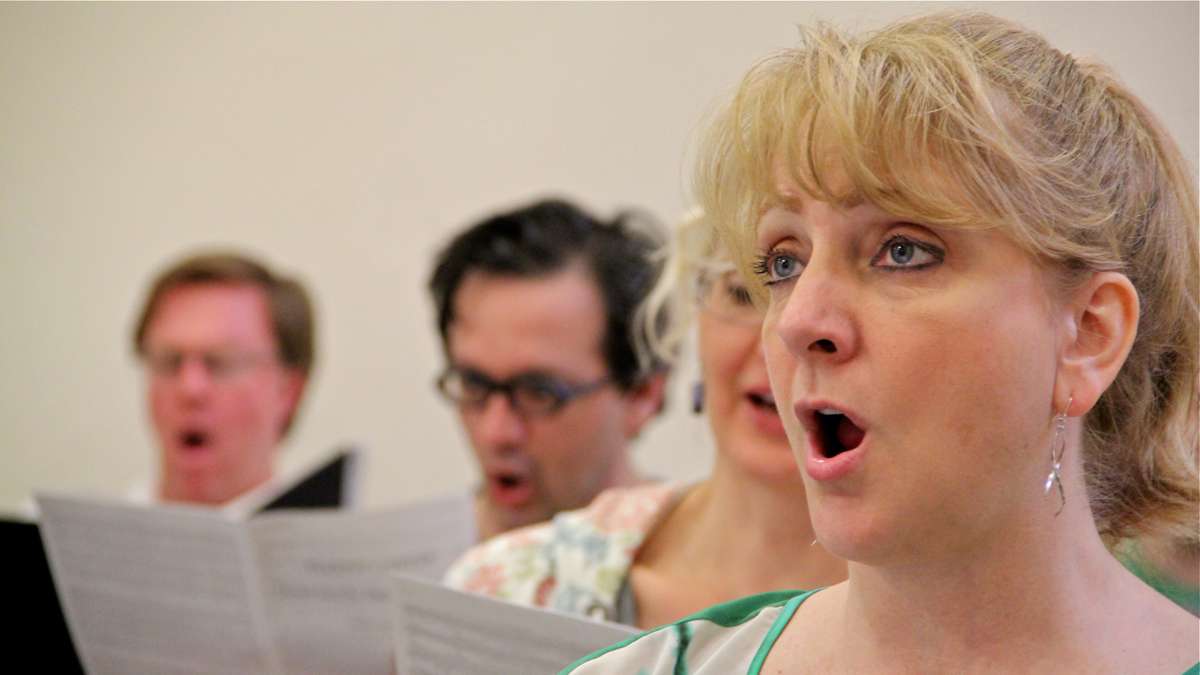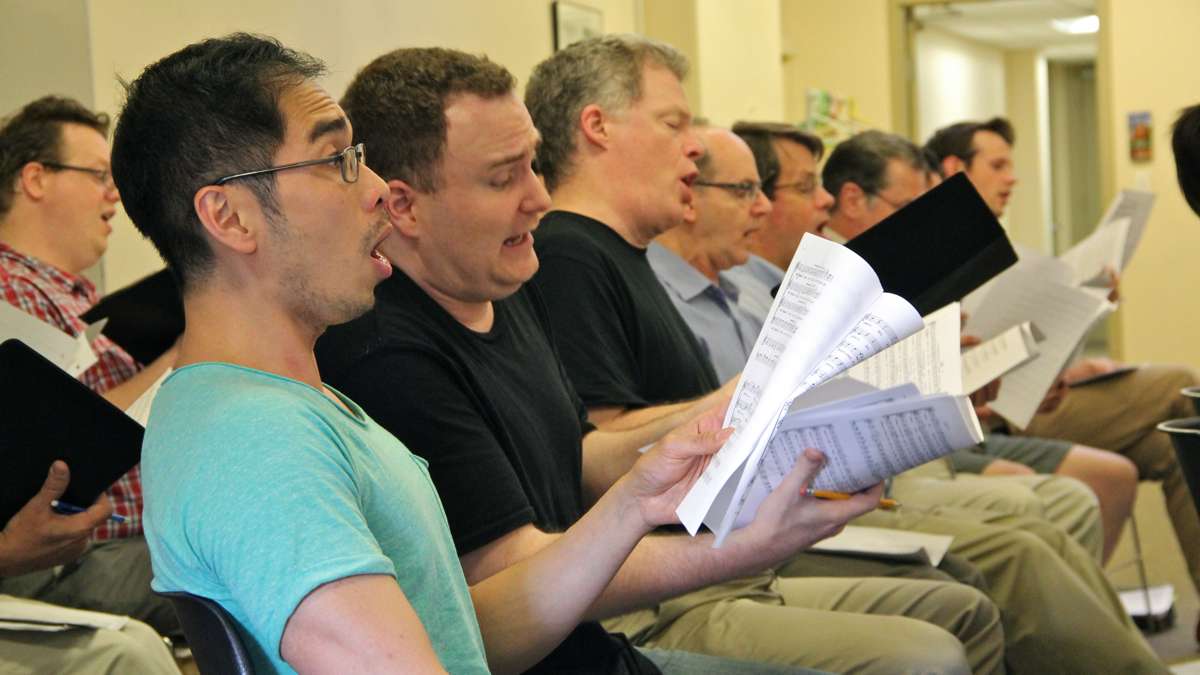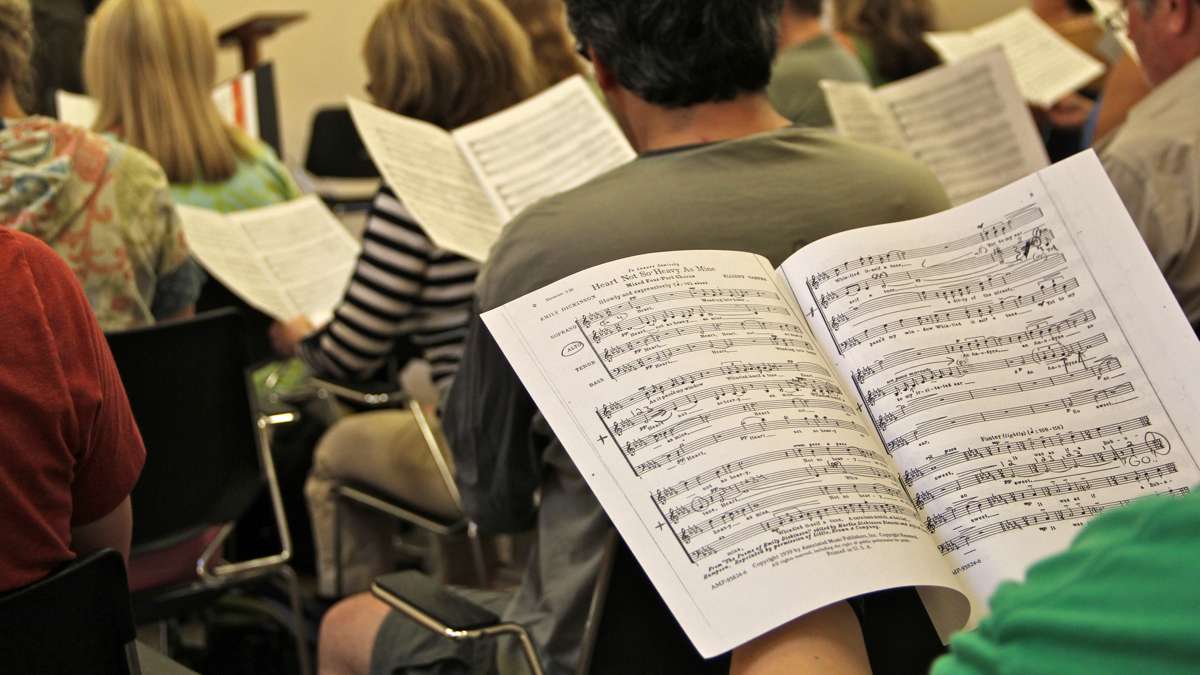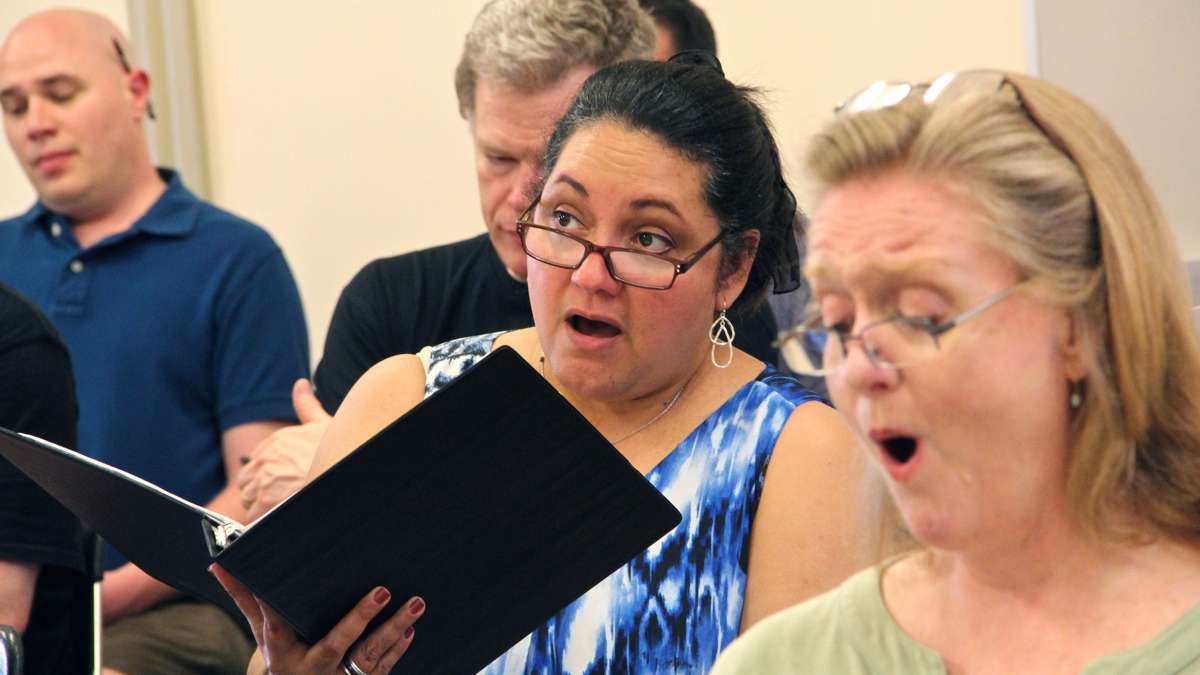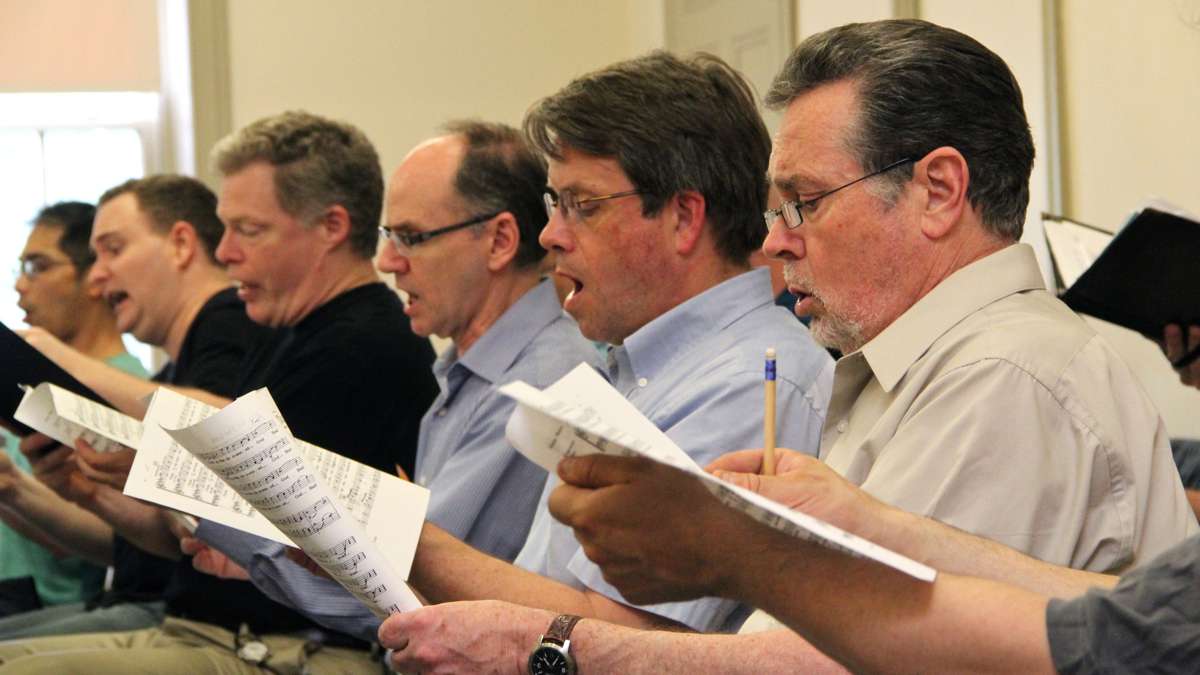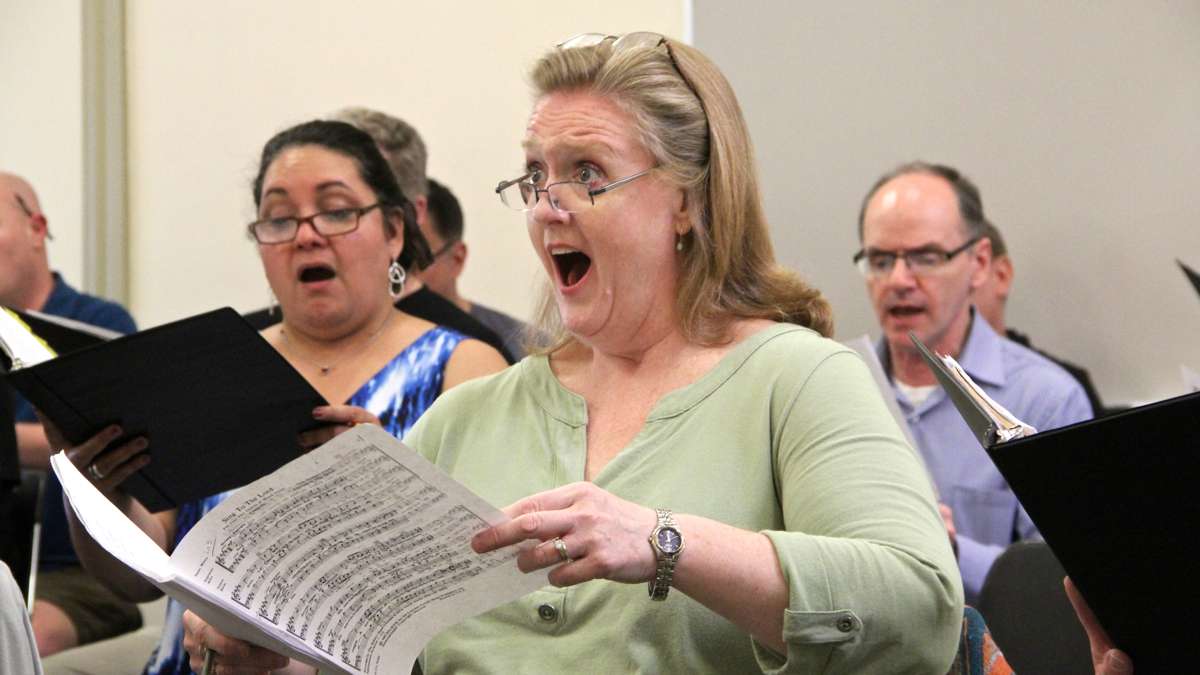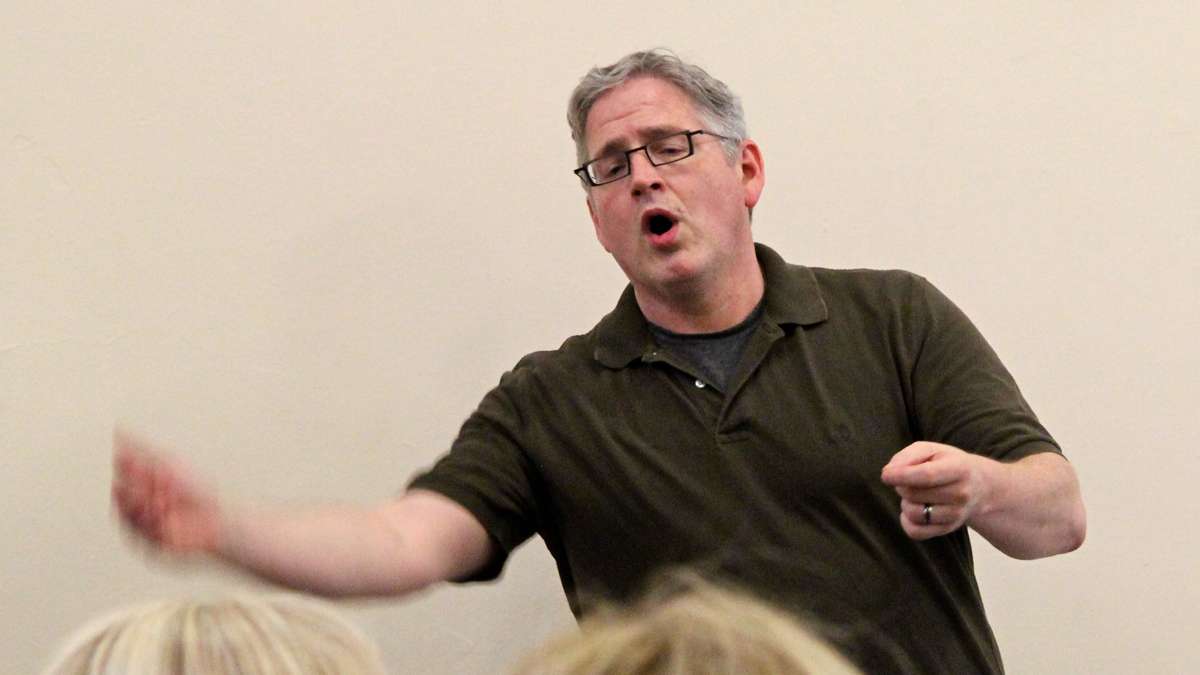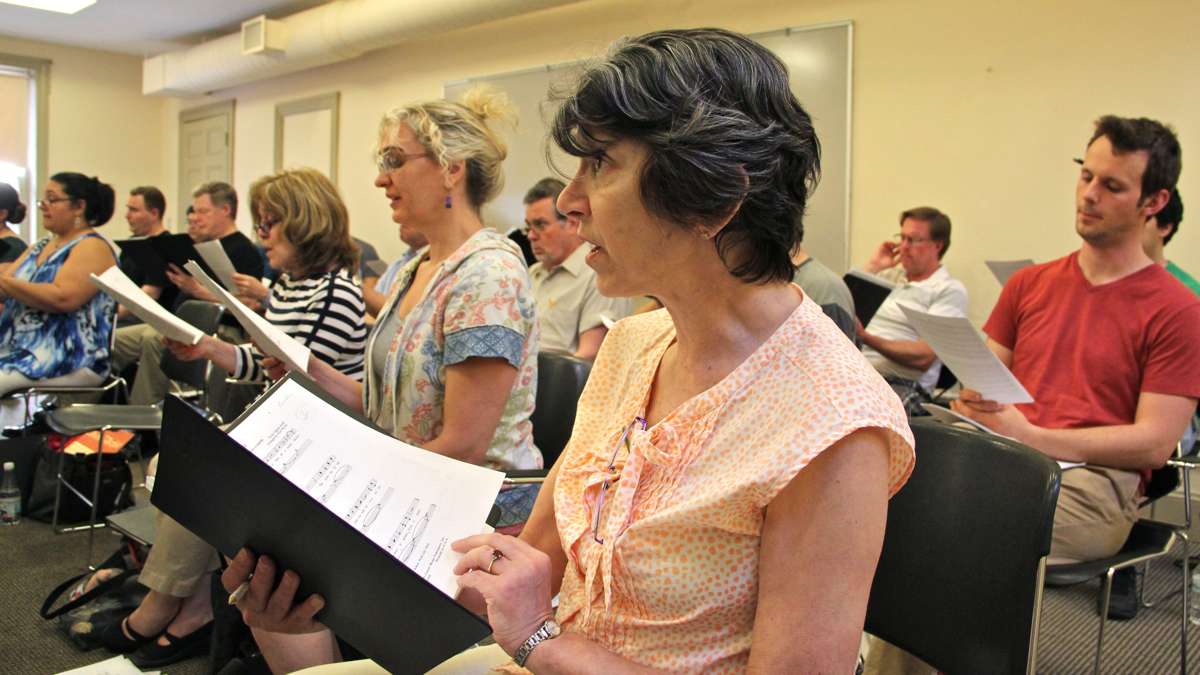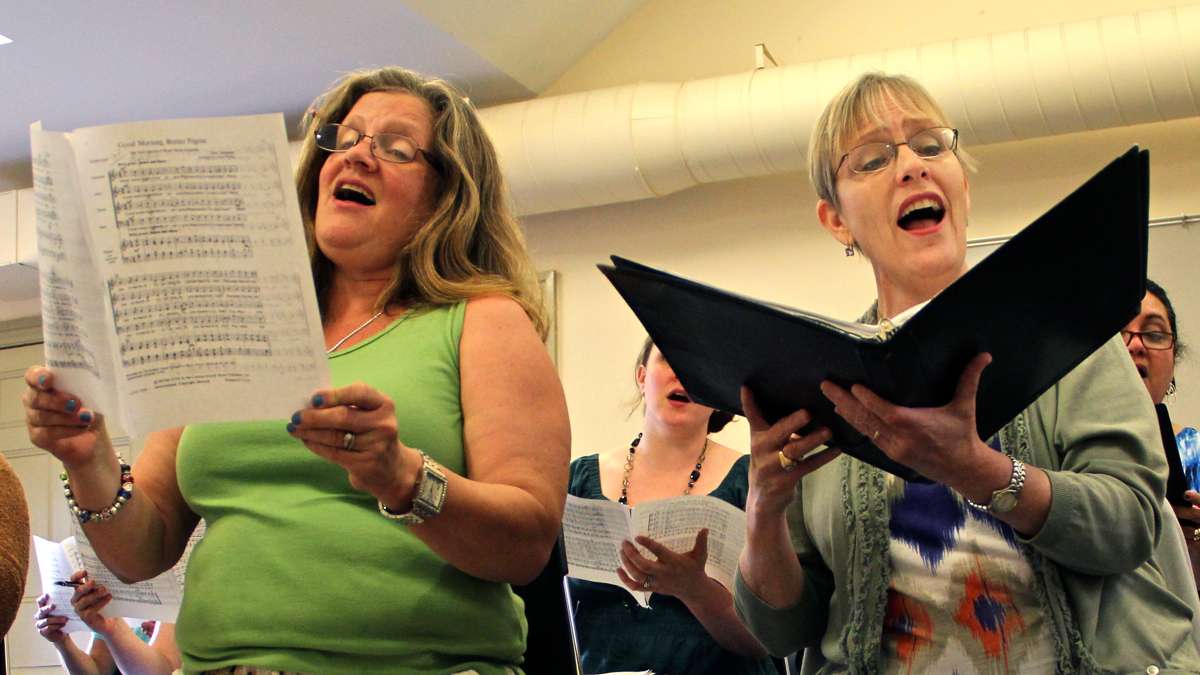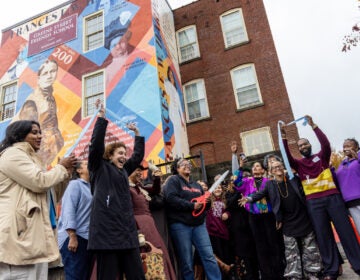With bruises, a bit of nostalgia and lots of emotion, Philadelphia Singers present final concert
ListenOn Saturday, the Philadelphia Singers will perform its final concert, ever. The classical chorale group has been a mainstay of the region’s music scene for 43 years, performing regularly with the Philadelphia Orchestra.
The final concert of the 2014-2015 season, at the Church of the Holy Trinity in Rittenhouse Square, had been programmed originally as a farewell for the group’s music director and conductor, David Hayes, who had announced he would step down from the position after 23 years. Hayes programmed some of his favorites, including pieces by Bach and traditional hymns.
Then, in December, planning began for a farewell concert for the entire ensemble as the board voted to dissolve the organization for financial reasons.
“It’s a specialized art form, choral singing. It’s hard to get money,” said baritone Gregory Cantwell, who has been with the Philadelphia Singers since its inception. “That’s always been the problem with the Singers. That’s what caused the death knell for us. It’s really sad.”
Most classical choral groups are a mixture of professional and volunteer voices. The Philadelphia Singers is one of the few groups that is all professional. (The group uses volunteer singers to fill out the much larger Philadelphia Singers Choral.)
“It’s that strength of being able to pick up a piece of music, whatever it might be, and run with it,” said alto Allison Harvey, who has been with the Singers for 24 years. “There’s a real commitment to working with each other at a high level.”
The news of the group’s demise came suddenly. The singers were told mid-season — just before the Christmas programs — that this would be their last.
“I was walking around with a knot in my stomach,” said Harvey. “I’m sad – a little angry that it disappeared on us so suddenly. A lot of the emotions when something you love dies.”
The group was started in 1972 by a fresh graduate from the Curtis Institute, Michael Korn, who believed classical vocal singers should be paid just like instrumentalists. But it had been living pretty much hand-to-mouth for 43 years. When a grant from the William Penn Foundation did not come through last year as expected, that signaled end.
“It’s easy to wallow in these pieces. I don’t want to wallow,” Hayes told his singers during rehearsal on Tuesday, as he ran them through traditional hymns. “I want to be expressive, but I don’t want to wallow.”
It has been a tough week for Hayes. Just minutes after that rehearsal, he boarded the 9:10 Amtrak train to New York with tenor Michael Savino. The two took seats in café car to talk over a couple beers during the trip.
As the train took a curve in Port Richmond too fast, the café car turned onto its side, grinding into the embankment. The cars in front of it were crushed. Several people were killed and hundreds were injured. Miraculously, Hayes and Savino both walked away from the wreckage with only only bruises.
“I’m just going to stay quiet and rest a lot in the next few days, and then I’ll go into it business-as-usual in terms of rehearsing and performing,” said Hayes from a hotel room in Center City. “I probably won’t be moving quite a vigorously as I might normally when I conduct, still probably going to be a little bit sore.”
The show will go on. Many of the singers are treating the end of the group as a gig that lasted a good long time; now they have to look for more work. After all, they are professionals. But some nostalgia does creep in.
“We worked on an encore last night, a piece by Rachmaninov,” said the Cantwell, the baritone. “After we ran through it, David looked a little verklempt. He said, ‘I just wanted to hear you sing it again.'”
There has been talk among the Singers of trying to get together as a different ensemble, so the history and talent of the group will not die with the Philadelphia Singers.
“I need to do this. I need the outlet,” said tenor Ken Garner, a core member of the Singers. “I hope something comes together so that these singers can sing with the Philadelphia Orchestra, and do contemporary pieces and great works — like the Bach B Minor Mass and the Passions – that get performed well very rarely.”
WHYY is your source for fact-based, in-depth journalism and information. As a nonprofit organization, we rely on financial support from readers like you. Please give today.



